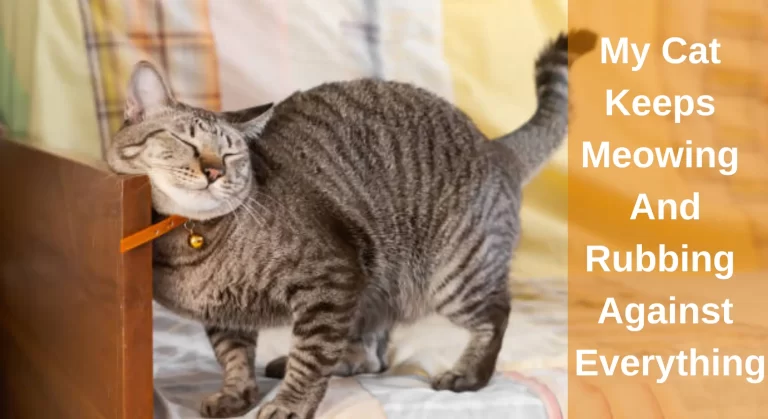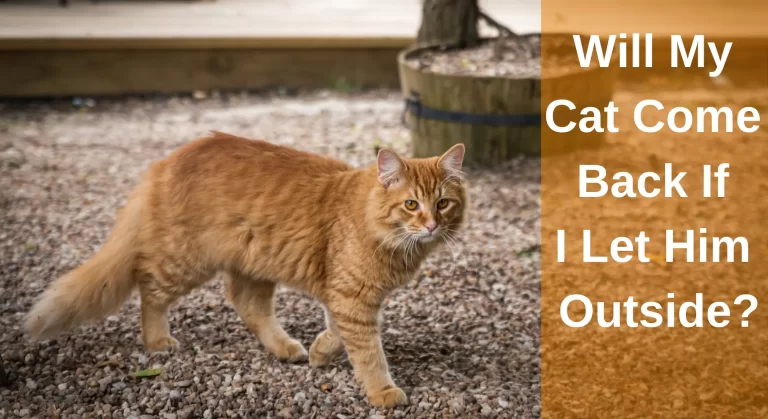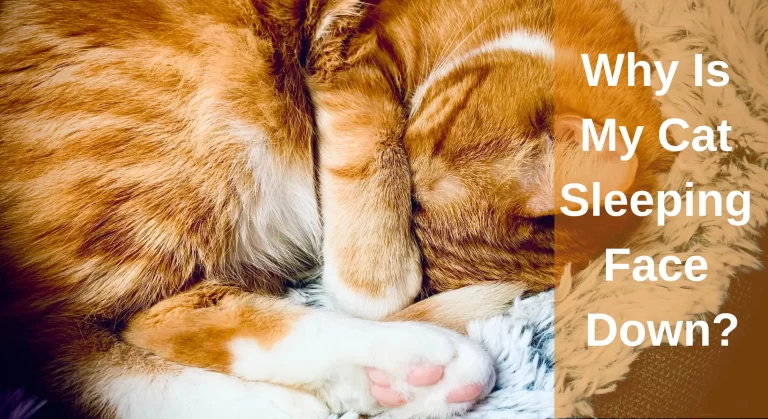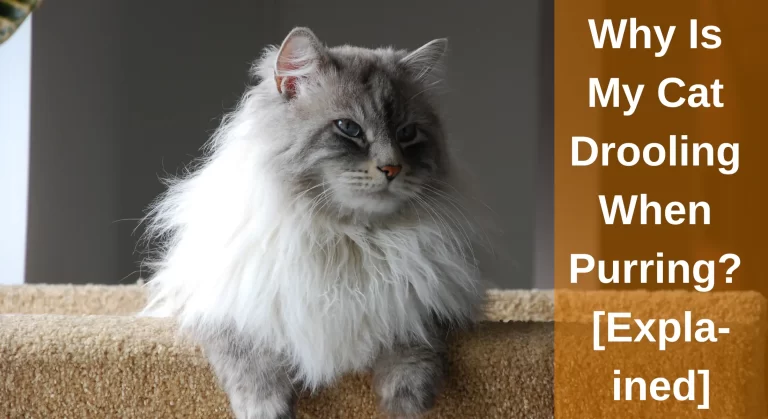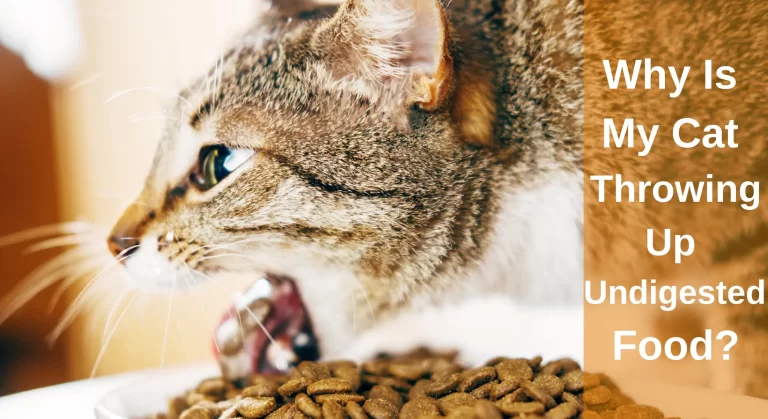Why Does My Cat Purrs And Bites Me Gently?[Answered]
Cats are known for their distinct behaviour, one of which is purring. Cats make a common and delightful sound when they are relaxed and happy. However, there are instances when they also display gentle biting behaviour that can be confusing for some pet owners. And if you’re asking yourself, “Why does my cat purrs and bites me gently” It’s one of the most commonly asked questions regarding cats slightly biting during purring.
Pets have body language that they use to communicate their feelings, and unless you understand what these signals mean, you’ll be confused and misunderstood.
When a cat purrs and gently bites you, it is usually a sign of affection and playfulness. It is different from aggressive biting, which can be painful and may break the skin. Gentle biting can also be a way for cats to show dominance or establish boundaries. For example, if you are petting your cat and they start to nibble on your hand, it could be its way of saying that they have had enough.
If Your kitty feeling anxious. it’s best to stop petting them and give them space. It’s important to pay attention to your cat’s body language and to redirect their attention if they become too rough.
So, if your cat has adopted this behaviour, you may be wondering how to stop your cat from biting you, even gently. In this post, we’ll be going to answer some of the most frequently asked questions by cat owners, such as:
- Why does my cat bite me gently while purring?
- Is it okay for my cat slightly bite me while purring?
- Is a slight bite an indication of pleasure or hostility?
- What Should You Do If Your Cat Bites You?

Relationship Between Purring and Biting
Purring and gentle biting often go hand in hand with cats. This is because both behaviours are typically displayed when cats are feeling happy, relaxed, and comfortable with their surroundings.
Purring can indicate that your cat is content and relaxed, while gentle biting can be a way for them to show affection and playfulness.
Interpretation of Purring and Biting
Interpreting your cat’s purring and biting behaviour can be tricky, as they can have different meanings depending on the context.
Purring can indicate that your cat is happy but can also be a sign of anxiety or pain. Similarly, gentle biting can be a playful and affectionate gesture, but it can also indicate that your cat is feeling overstimulated or uncomfortable.
Understanding Your Cat’s Behavior
When it comes to interpreting your cat’s purring and biting behaviour, you must understand its behaviour. This involves observing their body language, vocalizations, and overall demeanour.
If your cat is purring and gently biting while relaxed and content, it is likely a sign of affection and playfulness. However, displaying these behaviours while feeling anxious or uncomfortable may be a sign that they need space or attention.
Reasons Why Does My Cat Purrs And Bites Me Gently
However, biting and purring would appear to be conflicting behaviours; there are several conditions in which they naturally coexist. I’ve gone through each of these major reasons in depth, so keep reading to find out everything you want to know!
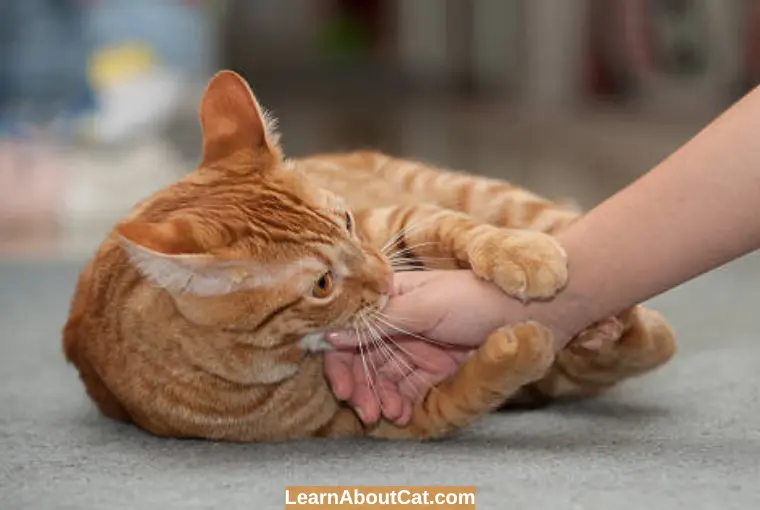
1. Bonding, Socialization and Attention-Seeking Behavior
Cats are social creatures, and purring and gentle biting can be a way for them to bond with their owners. When a cat purrs and nibbles on your hand, it can be a sign that they trust you and feel comfortable around you.
Cats can be very demanding when they want attention. Purring and gentle biting can be a way for them to get your attention and let you know that they want to play or be petted.
2. Playtime Request
Those people who ask Why Does My Cat Bite Me Gently While Purring? Must know this major reason. Your cats may also bite you slightly when they want to play with you, but you don’t understand.
Cats are natural hunters, and they love to play. Gentle biting can be a way for them to engage in playful behaviour and release their hunting instincts.
When you don’t teach your kittens not to bite your fingers, they think your fingers are fun. Thus, your cat constantly bites you constantly to initiate play.
So, be careful while your cat plays with your fingers while you’re cuddling them, as they can suddenly bite you because they’re having so much fun!
3. Overstimulation
Overstimulation is another reason your cat seeks attention and then attacks you suddenly. It might be difficult for you to change the spot of rubbing while patting your cat repeatedly.
However, Your cat may become anxious because repeatedly patting the same spot can quickly make your cat uncomfortable. The reason for this uncomfortable feeling is that the nerves in that location become overwhelmed, which prompts your cat to bite in response to the uneasy sensation.
You also notice that sometimes your cat screams yet wants to be rubbed. These two actions are signs of a violent attack by your cat.
Also Read: How To Read Cat Body Language?
4. Closure
When your cat has enough petting and wants to do something else, you’re still patting them. They may bite you rapidly at that moment to show, “I’m done with purring; let me go.”
But If you continue to embrace your cat despite showing minor or significant warning signs, the cat may claw harder.
Moreover, it may bite you down hard and even growl or hiss at you. Remember that your pet isn’t your slave, so independence is essential!
5. Stress and Anxiety
All cat owners know very well that cats purr only when they’re happy and comfortable. But, there may be another reason for purring: anxiety and stress.
So, if your cat is experiencing these negative feelings, the relaxing motions of purring can assist in soothing and restating them. Moreover, if your cat is twitching while purring, it also shows an anxiousness sign.
Sadly, most stressed-out cats prefer to be alone when they’re in stress, so if you cuddle them or pat them while at that time, they may bite you severely.
6. Territorial Aggression
The most common reason for your cat is biting while cuddling is territorial aggression. Cats enjoy having a line of authority; they want to be dominant over other animals in your home.
Biting, snarling, and growling are aggressive actions that your cat may show to other animals in your home or that animal that gets close to you.
This territorial aggressiveness is mostly directed at a new or current pet. However, sometimes it may transfer to artificial things if your cat is too afraid or agitated by them.
The biting induced by aggressive actions is generally gentle at first, but it may become violent if the conflict continues between your cat and other animals or things.
How to Stop Your Cat from Biting You, Even Gently?
After knowing the reasons for cat biting while purring, most of you might be wondering how to stop your cat from biting you, even gently. I will share some tips to control your cat’s unwanted behaviour. Once you follow these recommendations, you’ll notice that your kitty will never bite you again!
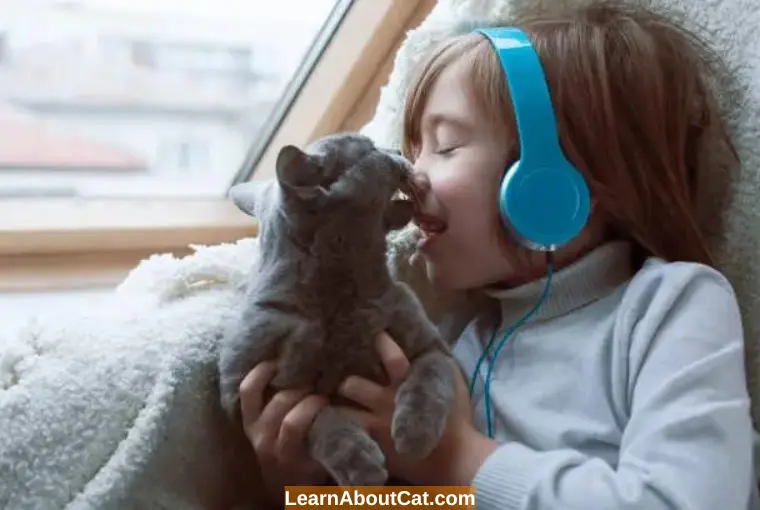
1. Avoid Encouraging Biting Behavior
Responding positively to your cat when it purrs and bites you gently is important. This includes praising your cat, petting them gently, and engaging in play if they seem interested.
Rough play and aggressive responses can lead to biting and other undesirable behaviours, so it is best to avoid them. Instead, play with them using soft toys like stuffed animals or strings.
2. Notice Warning Signs
Most importantly, you must notify the warning indications that show your cat is about to bite you. I’ve discovered various indications that a cat exhibits when it’s about to bite. Here are the examples:
- Ears raised
- Pupils enlarged
- Hairs on the back elevated
- Claws that aren’t covered
- An alert posture
- A curved back
- A tail that is rigid and lowered
- Hissing and other aggressive vocalizations
If you manage to notice these changes, you will be able to step back from your cat before it bites.
Also, Check Out: Why Does My Cat Nibble My Fingers?
3. Understand your Cat’s Preferences – Redirect Your Cat’s Attention
If your cat bites you while cuddling regularly, then you must quit petting them completely. However, I strongly advise you against doing so. Because sometimes, purring makes your cat feel comfortable and helps build a strong bond between you.
Therefore, you must learn what your cat likes and hates to guarantee that your cuddles don’t react violently.
Whenever your cat bites you while purring, redirect their attention to a toy or scratching post. This will help them associate biting with toys and not with humans.
Some factors that may help you to understand your cat’s preferences are listed below:
- If your cat always becomes violent after a few minutes of cuddling, try patting them for a shorter time and notice if it gets violent again.
- If your cat wants to cuddle, it’ll push your palm with her head to be stroked.
- Most cats want to be stroked on their faces. While others like having their tummies, backs, or tails stroked.
- If your cat expresses discomfort with a location, stop patting it; rather, focus on the regions they prefer.
- Learn at which time of the day your cat wants you to cuddle.
- In this case, set a specific time to show your cat some affection instead of compelling it to sit for cuddling when you surrender control!
Once you’ve identified these factors, you can personalize your cat’s cuddling routine to their preferences.
Find Out: Why Does My Cat Bite My Hair And Head?
4. Provide Enough Attention – Establish a Soothing Environment
Cats may become overly aggressive if they don’t receive enough attention. Make sure to spend enough time with your cat to fulfil its social and emotional needs.
As previously stated, cats can bite you if they’re stressed or territorially aggressive. So, create a pleasant environment in your home where your cat feels comfortable. Try the following factors to make a peaceful environment for your cat:
- A soothing collar or other aromatic products
- Avoiding loud noises as much as feasible
- Provide several hiding spots
- Make sure that all of your cat’s requirements are satisfied.
- Provide balcony accessibility
5. Avoid Punishing Your Cat – Counter Condition
Reacting negatively to your cat’s purring and biting behaviour can be counterproductive and can damage your relationship with them. This is the situation in which you can praise your cat for not biting you instead of punishing it for doing so.
It will only make things worse if you punish your cat for biting, as cats are not well-adapted to punishment, and it can make them feel anxious and scared. You should never punish or misbehave with your cat because you may jeopardize your relationship.
To experiment with counter-conditioning, follow these three simple steps:
- Serve your cat the food it likes, such as chicken.
- Give your cat a tiny portion of the food every time you pat them. This will assist them in developing pleasant connections with being patted.
- Continue to reward your cat for good behaviour, increasing the duration between treats each time.
What Should You Do If Your Cat Bites You?
Most people are unaware of giving themselves first aid in case of a cat bite. In this last part, I’m going to answer this question; What Should You Do If Your Cat Bites You? Here are some first-aid tips that will help you to prevent cat bite infection:
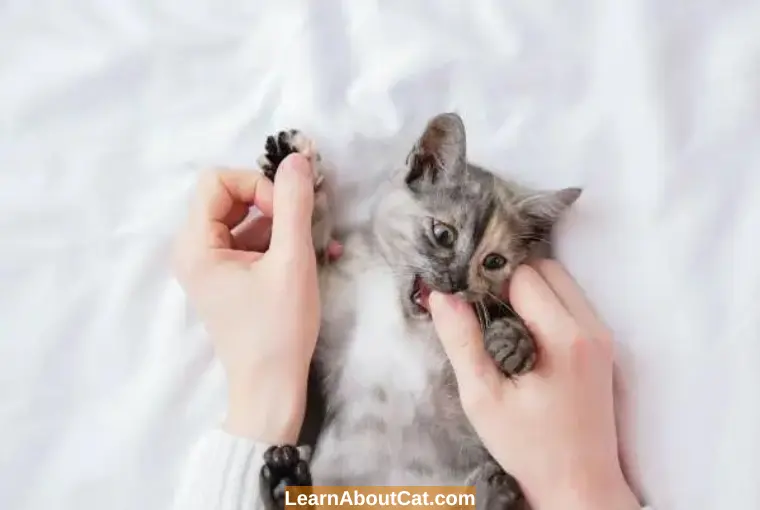
- Clean your wound gently with a specific solution or water.
- If your cat’s bite causes bleeding, then applying pressure to the wounded site will stop bleeding within 5 minutes.
- Wrap your wound in a sterile dressing.
- To avoid inflammation and germs, elevate the injured area.
- Examine for symptoms of infection.
- To avoid infection, take an antibiotic.
If your previous tetanus vaccination was more than 5 years ago, then you must get one.
Frequently Asked Question
Is it normal for cats to purr and bite at the same time?
Yes, it is normal for cats to purr and bite simultaneously. This is often a sign of contentment and playfulness.
What if a cat bites me more aggressively after being affectionate?
If your most loving cat suddenly becomes highly offensive, you must quit what you’re doing immediately. They’ll most likely withdraw and go to a favourite area where they can rest without being disturbed.
So, you have to do nothing except leave them alone for a little while. They’ll return for extra affection when they’re relaxed.
What is a “gentle” bite that is okay versus an “aggressive” bite that is NOT okay?
Gentle bites don’t indicate love and affection. They indicate that your cat has done with what you’re doing. They may bite softly if that amount of alert has previously worked. However, if the contact persists, they may bite harder, which can cause severe injury or even bleeding.
What does it mean when a cat bites softly?
Cats love nibbling on our fingers, which is a tickling, funny quirk we love. Your cat playfully nibbles you as a way to show her affection. This is different from what cats do when they’re being fearful or defensive.
Why does my cat purr when I’m not petting them?
Cats may also purr when they are feeling anxious or scared, as a means of self-soothing. It’s possible that your cat is purring in an attempt to calm themselves down, even if you are not directly interacting with them.
Is a slight bite an indication of pleasure or hostility?
A slight bite from a cat can be an indication of pleasure or playfulness, especially when accompanied by purring or other friendly behaviour.
However, it can also be a sign of aggression or fear, particularly if the cat feels threatened or cornered. It is important to observe your cat’s body language and behaviour to determine the context of the bite and respond accordingly.
Wrap Up!
Understanding why your cat purrs and bites you gently is important in developing a healthy and happy relationship with them. Purring can indicate contentment and relaxation, while gentle biting can be a sign of affection and playfulness.
Moreover, providing a relaxed atmosphere for your cat and practising counter-conditioning are more effective strategies to discourage this habit. It is important to respond positively to your cat’s behaviour and to train them not to bite through positive reinforcement and redirecting their behaviour.
Related Posts:
Who is Isabella?
My name is Isabella, and I am a dedicated and knowledgeable cat enthusiast. With years of experience caring for cats and a deep love for felines, I made a mission to help other cat lovers navigate the challenges of cat ownership.

